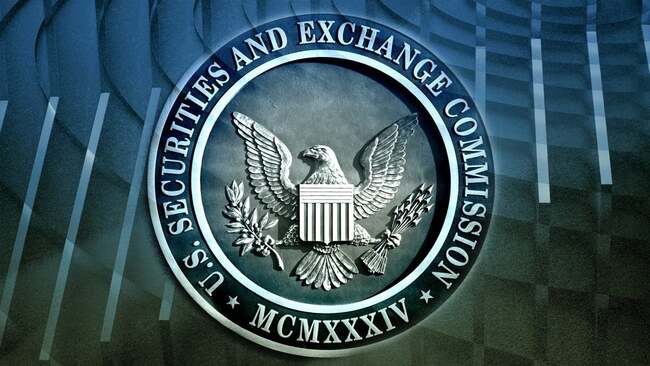Highlights:
- SEC charged Rari Capital and its co-founders with misleading investors and operating as unregistered brokers.
- Rari Capital misrepresented investment profitability and imposed hidden fees, resulting in investor losses.
- SEC increases scrutiny on crypto projects, with significant penalties imposed.
On Wednesday, the United States Securities and Exchange Commission (SEC) announced a settlement with crypto lending startup Rari Capital and its co-founders Jai Bhavnani, Jack Lipstone, and David Lucid for allegedly misleading investors and operating as unregistered brokers. The settlements, pending court approval, do not reveal any financial amount.
SEC Claims Rari Capital’s Earn and Fuse Pools Featured Unregistered Securities
According to a Sept. 18 announcement, the SEC stated that Rari introduced two investment products: Earn pools and Fuse pools. These “functioned like crypto asset investment funds,” letting investors deposit assets into lending pools and earn returns. Rari managed the Earn pools, while users created the Fuse pools, both generating returns for investors. The Fuse pools enabled users to create customizable lending and borrowing markets.
Investors received tokens representing their stake and profit rights, with some Earn pool participants also acquiring Rari Governance Tokens (RGT). The SEC claims that by offering these tokens and RGT, Rari Capital engaged in unregistered securities transactions.
US SEC settles charges against Rari Capital over misleading investors https://t.co/ki3kseyVy7 pic.twitter.com/TnVYsEsyy9
— Reuters (@Reuters) September 18, 2024
Rari Accused of Misleading Investors on Earn Pools’ Returns and Fees
The complaint also alleged that Rari and its co-founders misled investors by claiming that the Earn pools would automatically rebalance assets into the highest-yield opportunities. In reality, manual intervention was frequently necessary, and Rari Capital sometimes failed to act.
They also advertised high annual percentage yields to attract investors but did not disclose certain fees. Consequently, many Earn pool investors incurred losses. Moreover, Rari Capital Infrastructure and its co-founders are accused of conducting unregistered broker activities through the Fuse platform.
Director of the SEC’s San Francisco Regional Office, Monique Winkler, said:
“We allege that Rari Capital and its co-founders misled investors about both the features and profitability of certain of the crypto asset investments Rari Capital offered, and acted as unregistered brokers,” noted in a statement .”
The founders and Rari Capital settled with the SEC without admitting or denying the investigation’s findings. They agreed to final judgments that included permanent injunctions, conduct-based injunctions, civil penalties, disgorgement with prejudgment interest, and a five-year ban on the co-founders from serving as officers or directors. The court has yet to approve these settlements. Additionally, Rari consented to a cease-and-desist order from the SEC concerning broker registration without admitting or denying the findings.
SEC’s Crackdown on Crypto Projects Intensifies
Since the start of the year, the SEC has intensified its scrutiny of cryptocurrency projects, especially those misleadingly labeled as “decentralized” or “autonomous,” while breaching federal securities laws.
The regulator has issued Wells notices, filed lawsuits, or settled with numerous crypto firms. The SEC’s legal actions now target Ethereum and decentralized finance entities like ShapeShift, TradeStation, Uniswap, and Consensys. Additionally, reports suggest the CIA is investigating the Ethereum Foundation.
In recent years, the SEC has aggressively scrutinized the cryptocurrency industry. Chair Gary Gensler views most digital assets as securities, thus subject to SEC regulations. A Social Capital Markets report on September 9 shows the SEC imposed nearly $4.7 billion in enforcement actions this year, a 3,000% increase from 2023.
Latest: The #SEC has already leveled nearly $4.7B worth of fines against #crypto firms this year despite fewer enforcement actions than in 2023.#Bitcoin #BTC #Crypto #LQR #LaqiraProtocol pic.twitter.com/JGPgZyprGC
— TOBTC (@_TOBTC) September 10, 2024





